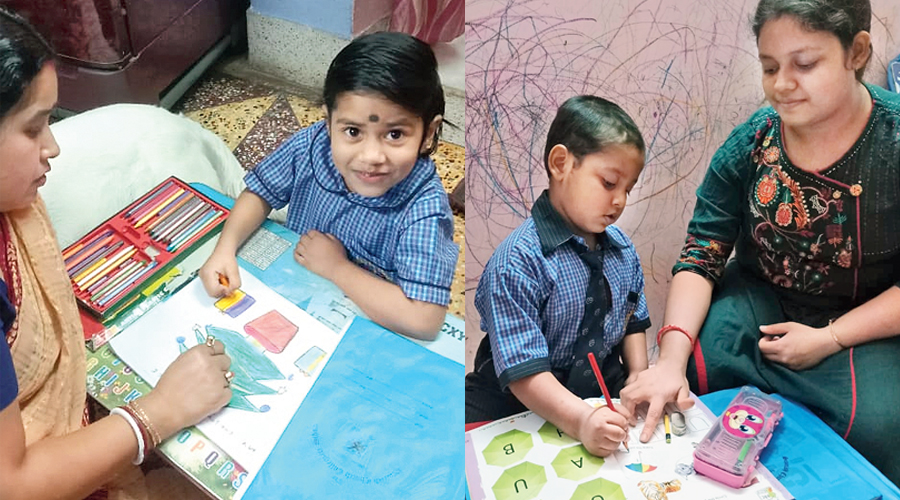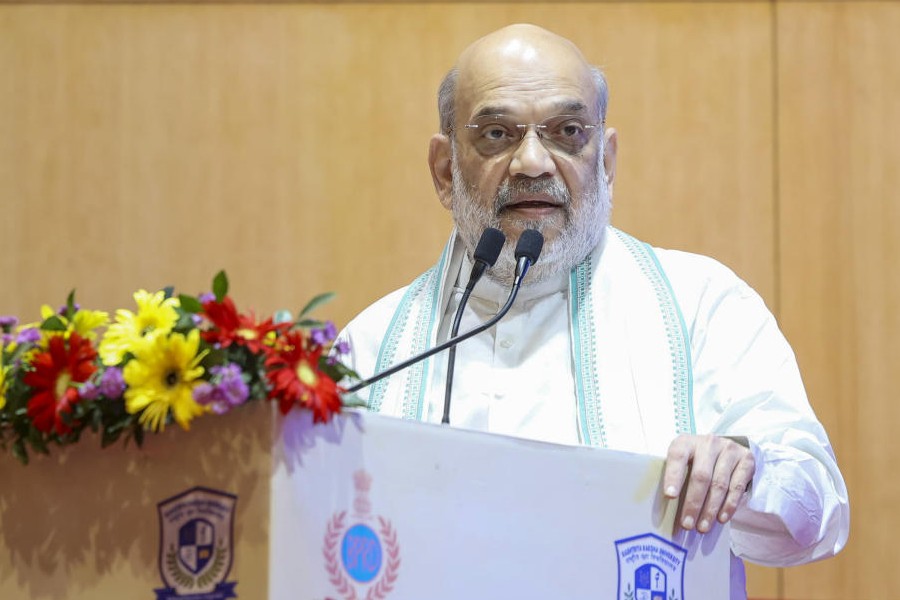Women from less-privileged families who had to forego their studies are now using texts and videos sent by schools of their children to resume studies, at least three school heads have said.
Most of these women from low-income group are homemakers or into tailoring work to supplement the family income.
Some have studied till Madhyamik in vernacular schools but aspire to provide their children with an English medium education.
The children of most of these women are in primary classes and they have been learning “simple mathematics and English words and phrases” from online classes of their children.
Some of these women have communicated to teachers how these online classes have helped them.
Online classes have various limitations but the silver lining is the enthusiasm of these women and that they are getting empowered, a principal said.
“Many of the women have not been able to receive proper education… but the online classes are providing them with an opportunity to have some sort of structured learning, however, rudimentary or unintentional by the school,” said a principal of a city school.
“Some of these women are getting access to education that had otherwise been denied to them and they now help their children record their responses and take an active interest in the work sent by the school,” the principal said.
Schools have been sending videos to the children and parents can refer to them as well.
“The videos are a ready reference,” Angela Ghose, acting principal, Scottish Church Collegiate School, second campus (Kestopur), said.
“Parents can watch them at their convenience,” she said.
The school now has students in pre-primary up to Class II.
Some of these women have told teachers how they have been picking up English, Ghose said. “I give them instructions in English and the women are asked to repeat them to their children in English. It helps both the mother and the child to learn spoken English.”
Initially, the women wanted specific answers to questions. “They are used to rote learning. But I told them that we will not give them answers like that. They have to practice by speaking to their children,” she said.
Despite the vernacular background of some parents, teachers have been asked to send notices in English. Parents have been told to speak to teachers if they can’t understand something, Ghose said.
Ghose said the mothers are also picking up table manners and etiquette lessons from the videos that the school is sending them and are teaching their children as well.
A few school heads felt many parents were taking more interest in the education of their children.
Shahani Begum said she had been attending online classes with her son who is in Nursery.
“I completed Madhyamik from a Hindi medium school but I wanted my son to study in an English medium school. The online classes have helped me, too…. I have been learning.”
“Many parents have told me they are attending online classes and learning. Some of them had to quit studies… and some are from vernacular schools,” Father Devraj Fernandes, principal, St Aloysius Orphange and Day School in Howrah, said. “Hence, the English medium and a structured education are helping them.”











